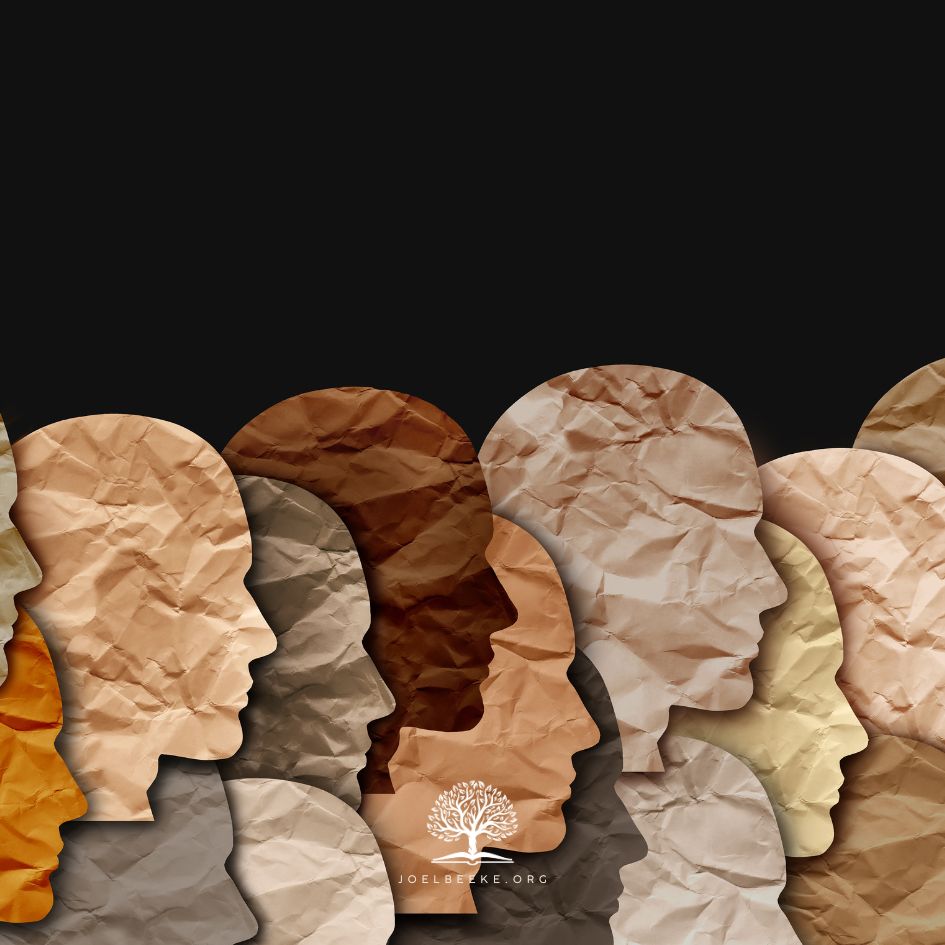
Calvin models for us the wide-ranging impact of his theology on Western European and North American civilization, whether it be the rise of the Western democracies; the development of economic life and international commerce, scholarship, and scientific discovery; or the promotion of the values of human dignity, personal freedom, social justice, and the rule of law (3).1I thank Rev. Ray Lanning for his assistance on this section.
Andre Bieler writes: “[T]he sum of medieval knowledge was theology—the study of God. The sum of the knowledge of the Renaissance was humanism —the study and knowledge of humanness. Now, the science of Calvin is a theological and social humanism which includes a study of man and society through a twofold knowledge of man by man, on the one hand, and knowledge of man through God, on the other.”2Andre Bieler, The Social Humanism of Calvin, trans. Paul T. Fuhrmann (Richmond: John Knox Press, 1964), 12. In other words, Calvin’s writings display a rare combination of the legitimate fruits of human inquiry, science, and scholarship completed by—and interpreted in the light of—the unchanging truths of the Word of God.
Calvin discussed many aspects of man’s life in society and in the world as a necessary corollary to his exposition of man’s relationship to God and the way of salvation through Christ. For example, he devoted an entire chapter of The Institutes to a wide-ranging and thorough discussion of civil government.3Institutes 4.20.
Significantly, in the light of subsequent debates and developments among Calvinists, Calvin held that “the Lord through the hand of Moses did not give that [Mosaic] law to be proclaimed among all nations and to be enforced everywhere.”4Institutes 4.20.16. Rather, God granted freedom to each nation to frame its own laws, according to its circumstances, so long as those laws “press toward the same goal of equity,” that is, the equity found in the moral law of God, “a testimony of natural law and of that conscience which God has engraved upon the minds of men…this equity alone must be the goal and rule and limit of all laws.”5Ibid.
As John T. McNeill writes: “Calvin sets the example of a positive attitude to government and a deep appreciation of the ruler’s office…. The aim of government is the public good, conceived in the broad sense of service to every human person in his welfare, his education, his opportunity to inherit the treasures of culture and religion…. [Yet,] Calvin is a realist in his political expectations. He sets the standards high; but he does not expect sinless perfection in political man.”6John T. McNeill, “Calvin’s Ideas Still Politically Relevant Today,” in Calvin and Calvinism: Sources of Democracy?, ed. Robert M. Kingdon and Robert D. Linder (Lexington, Mass.: D.C. Heath and Co., 1970), 75–6.
Similarly, Calvin had much to say about the freedom of the individual, the stewardship of earthly goods, the dignity of labor, and the rights of working people. As a social force, he reformed the morals of great cities, established the rule of law, and opened the way for people to raise themselves by education and by the diligent use of their knowledge and abilities. Calvinism promoted and encouraged scholarship of all kinds, including scientific research. Calvinism also promoted the right of people to limit the powers of their governors and to change forms of government, if necessary.
But Calvin discussed none of these things in isolation from God and His Word. Rather, he placed his vision of man’s life in the world squarely in the context of man’s twofold identity as a creature made in the image of God and as a fallen sinner redeemed and delivered from bondage to sin through Jesus Christ. The potential for great achievement by the first identity is recovered and enabled only by the second.
Admittedly, Calvinism’s ideas of human freedom and dignity often ran ahead of the actual practice of Calvinists at any given point in time. Even today, some Presbyterians may not be altogether comfortable with the degree of personal freedom of faith and practice set forth in the Westminster Confession of Faith, which says, “God alone is lord of the conscience, and hath left it free from the doctrines and commandments of men which are in anything contrary to His Word; or beside it, in matters of faith or worship.”7John T. McNeill, “Calvin’s Ideas Still Politically Relevant Today,” in Calvin and Calvinism: Sources of Democracy?, ed. Robert M. Kingdon and Robert D. Linder (Lexington, Mass.: D.C. Heath and Co., 1970), 75–6.
Nonetheless, Calvinism has been a great force for freedom wherever it has influenced people. Calvinism also has fostered economic development, advances in knowledge, political and social change, and establishment of the rule of law.
Many people today are unaware of the debt they owe to Calvinism for the personal freedom, economic opportunities, and cultural attainments that they value so highly. The emptiness of modern culture, the pessimism of the age, and the excesses of capitalism, socialism, and nationalism that have bedeviled our past and imperil our future prove the folly of separating Calvinistic values for society from Calvinism’s vision of who man is, under God, and what he can be only in Christ, according to the Word of God.
Economist and lay theologian Douglas Vickers sums it up well: “The Reformation was first and essentially a theological movement that spread its influence to the socio-cultural level in its implications, chief among them being the sanctity of individual freedom. That influence has been tarnished, notably in its economic aspect, by a failure to recognize that sin is abroad in the world and in the hearts of men.”
Excerpt from
Calvin for Today
By Joel Beeke








